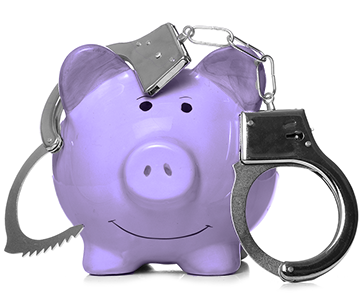
Although the offence of drink driving is an imprisonable offence,
the court looks at each drink driving offence on a case-by-case basis. Not
every offender will face time in jail.
The offence is contained within Section 5(1)(a) of The Road
Traffic Act 1988. The offence of drink driving is committed if a person drives
or attempts to drive a vehicle whilst over the legal limit. However, a motorist
will only face a custodial sentence if the proportion of alcohol in their body
was over a certain limit and the court are satisfied that a combination of that
reading and the presence of any aggravating factors have led them to take the
view that the seriousness of the offence is such that the threshold for custody
has been reached.
When a drink driving matter appears in court, the Magistrates or
District Judge have a range of powers open to them when deciding on a suitable
sentence to impose. The court considers every drink driving case individually,
and the range of sentences reflect this. These include:
·
Disqualification element of the penalty: If you are
convicted of drink driving the court are ordered to impose a mandatory minimum
disqualification (unless there are special reasons present), namely:
o
Imposing a driving ban of 12 – 60 months
o
Financial/punitive element of the penalty
·
In addition to a ban, the court must impose
either a financial penalty or an element of the penalty that is designed to
punish the offender, namely:
o
Imposing a fine (an unlimited amount to be
determined by the Magistrate or District Judge)
o
Imposing a community order
o
Imposing a maximum 6-month prison sentence
How is your alcohol level evaluated?
The level of alcohol provided is determined by measuring level of
alcohol in your breath, blood, or urine.
You may be breathalysed at the roadside, but the result of that test cannot be used in evidence against you. If the roadside test establishes that you are over the limit, you will then be taken to the police station for an evidential breath test. Once there, you will be asked to provide two ‘evidential’ specimens of breath. The police will rely on the lower reading of the two. There may be instances where you are required to provide a specimen of blood or urine in the alternative to breath. Those specimens will be sent away for laboratory analysis.
Reaching the custody threshold
Once the level of alcohol is determined, if you are over the legal limit, you will be charged with an offence. For custody to be considered, the court uses the following thresholds:
·
120 micrograms of alcohol per 100 millilitres
of breath
·
276 milligrams of alcohol in 100 millilitres
of blood
·
367 milligrams of alcohol per 100 millilitres
of urine
If you provide a breath reading of 120ug and above, the starting point for the court when considering sentence is 12 weeks imprisonment. The maximum prison term is 26 weeks. The court will consider any aggravating factors and assess your blameworthiness when determining the sentence. If you have any previous convictions for drink driving, then you are more likely to be sent to prison, particularly if your convictions are more recent. Your chances of a custodial sentence are also increased if you were involved in an accident or carrying passengers, or if there was a high level of pedestrian or traffic activity putting others at risk of danger.
Can you avoid custody?
Whilst the circumstances of the offence are an important consideration for the court, the circumstance of the background of the offender can often be powerful enough to persuade the court not to impose an immediate prison sentence, even where that custody threshold has been reached. Entering an early guilty plea and presenting mitigating factors can be crucial in attempting to convince the court to reduce the severity of the sentence.
It is important to remember that the guidelines are a non-exhaustive list, and it is up to the court to decide whether you are sentenced to time in prison. Every drink driving case is different. The quickest way to find out if you'll go to prison is to speak to a solicitor, you can find a solicitor who specialises in criminal law at search4legal.co.uk/Home/Search.

